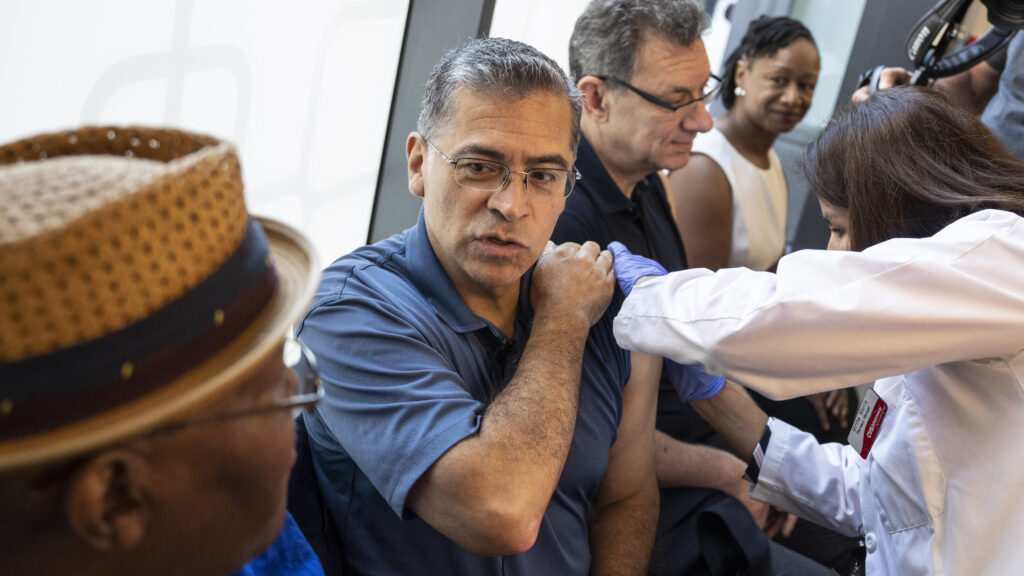WASHINGTON — After Pfizer and Moderna hiked the prices of their Covid-19 vaccines this year, the federal government will now pay nearly three times more than it did previously for each dose. And it’s paying more than countries that did far less to support vaccine development.
Health and Human Services Secretary Xavier Becerra glossed over the dramatic increase in the amount the government is paying for vaccines in a public appearance last week, when he got vaccinated at a CVS pharmacy in D.C.
Becerra said then that the price that the federal government will pay for some vaccines “will be similar to what we paid in the past for the vaccines.”
However, the Centers for Disease Control and Prevention is paying $81.61 for the Moderna booster this year, and $85.10 for the Pfizer shot — which is around triple the amount the federal government paid for each shot last year. Moderna charged the government $26.36 per booster dose last year, and Pfizer charged $30.48.
The change is partly because the federal government ran out of money to continue to buy the vaccines in bulk to distribute across the country, so the vast majority of vaccine purchases are instead flowing through normal channels and will be paid for by a variety of different insurance plans this year, including Medicare and Medicaid.
The CDC is buying the vaccines for its $1 billion program to provide vaccines for uninsured people. The doses will be sent to state and local health departments and community health centers.
The CDC’s prices this year are significantly discounted from the price the companies are charging private insurers, however, which are $115 for the Pfizer vaccine and $128 for Moderna.
The United States is also set to pay a much higher price than is being considered in Europe for the same Moderna product.
European Union officials are in talks to potentially buy Moderna doses for around 25 euros apiece, the equivalent of around $26.30, according to a report in the Financial Times.
Though the price is not final, the potential amount is roughly one-third of what the United States is paying.
Senate health committee Chair Bernie Sanders (I-Vt.), who called Moderna’s CEO Stéphane Bancel to Capitol Hill over the company’s decision to hike its vaccine price in March, was not pleased by reports of how much lower the EU’s price could be.
“Europeans are now negotiating with Moderna for a new vaccine, and their price is going to be substantially less in Europe than it is in the United States. So that’s exactly the issue. We’re trying to get a hold of reasonable pricing,” Sanders said in a brief interview at the Capitol.
Sanders has held up the confirmation of President Biden’s nominee to lead the National Institutes of Health to push for the federal government to include contracting provisions mandating that the U.S. should pay similar prices to other countries if they pay to develop a drug. HHS did so in a recent contract for a drug to prevent Covid-19 with the company Regeneron.
“Taxpayers and U.S. patients are getting a raw deal, again. It’s time for the Biden administration to announce a comprehensive reasonable pricing clause. Drugs and vaccines that benefit from public R&D funding must offer a fair price in return,” Public Citizen Access to Medicines Director Peter Maybarduk said.
John Wilkerson contributed reporting for this article.


